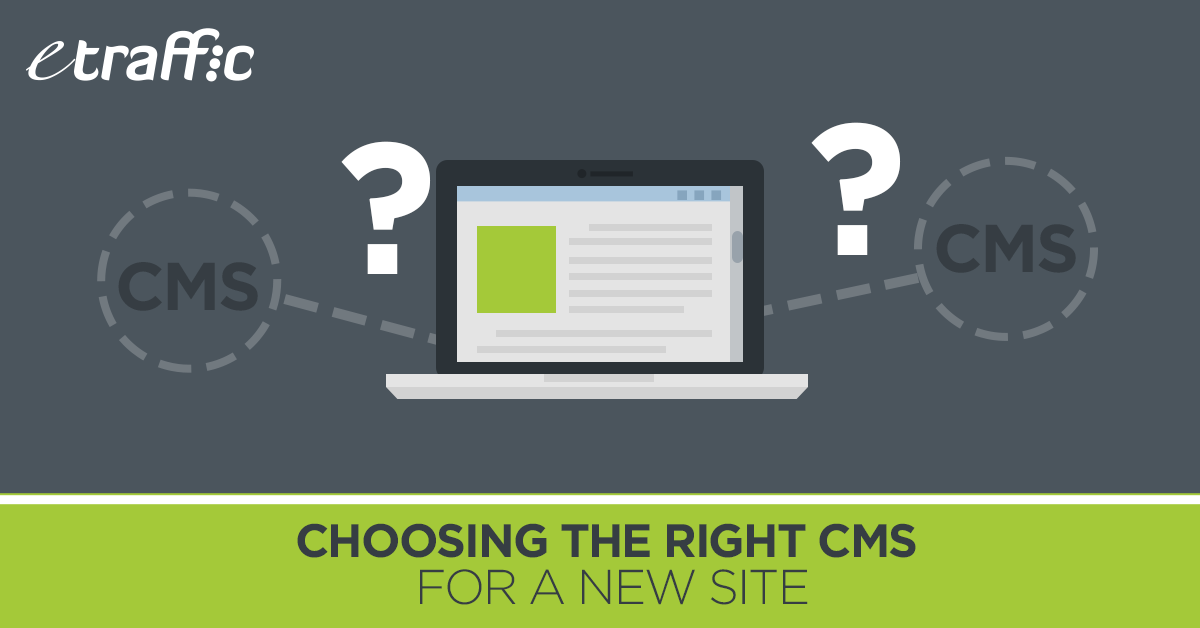
Your website is your most effective marketing tool. In today’s cutthroat market, startups need to find a way to build their websites quickly and easily.
Many web developers have found a way around this. They are increasingly turning to Opensource Content Management Systems for their work. CMS have thus become one the most powerful tools on the Web.
Gone are the days when you had to hand-code everything for a new website. Writing code from scratch has evolved from being the only way into a choice. Hand-coding is a cumbersome process. You must have a genuinely pressing reason to opt for it.
With opensource CMS solutions, you can build a website – quickly – without writing a single line of code. You can manage registration of users, system admin, RSS feeds and page layout with minimal efforts.
But with the wide array of available CMS, it can be challenging to find the right one for your new website. What then should you look for in a content management system? Here are the key considerations for choosing a CMS.
Most CMS operate under the freemium business model. This means you can download and use the software for free. But you will eventually need to purchase upgrades as your business grows.
However, some of the CMS require a fee. This is often a one-time fee for the acquisition of the software license.
It is best to enquire if any such fees apply. Then you can plan for them as you allocate budget for the CMS platform you consider using.
CMS are popular because they are easy for anyone to set up, even without any background in web design. For your new website, find out how easy it will be to work with the CMS. Activities such as inserting an image or editing text should be easy and intuitive.
Priority should be given to CMS that are easy to use without compromising quality. A good CMS should provide clear instructions on how to use it. This gives you a sleek peek into what your site will look like, and what will take to accomplish tasks such as adding pages or removing them, editing and adding documents and images.
Some CMS platforms impede search engine optimisation. Bad SEO results are the last thing you need from your CMS. It would mean that your marketing efforts will only be wasted.
So gather all the information you can about SEO and how the platform influences it. Consider whether it will allow you to write SEO friendly meta titles and descriptions.
Consider whether the platform offers any SEO tools and how they will integrate with the website. Nearly every CMS has some useful extensions and plugins for managing SEO tasks. WordPress, for example, has plugins for handling page titles, descriptions and other related elements. Also, decide how thoroughly you intend to manage your site’s SEO. Then you can ensure the plugins you will need are available with the CMS.
Your site’s web analytics dashboard should provide you with key information about your site’s performance at a glance. Choose a CMS platform that allows you to track the key metrics of your site’s performance.
You will need to check whether the CMS integrates well with analytics tools like Google search console and Google Analytics.
You need a means of measuring your success. This is a critical aspect of internet marketing. You can only achieve that if you get the right combination of tools and if they integrate well with your CMS of choice.
You need a CMS that will work with your server or IT configuration. Certain content management systems limit what you can do or may be incompatible with your web hosting account. You can do the homework alone if you have the technical skills or let your web designer check the CMS for compatibility with your hosting account and server.
Also check to see if any limitations exist on your IT service. You don’t want to end up with certain essential components blocked or filtered out of your CMS. WordPress websites are sometimes subjected to such filters. The filters may affect how your team accesses the site from within the office network.
Ultimately you must be free of cyber-attacks. And that is only possible with a secure platform. Check whether the CMS you intend to use has any known security issues.
Assess the security features available and evaluate if they are what you need for your site. Ask what precautionary measures are in place; and what the CMS company will do in case your site gets hacked.
User reviews and feedback are particularly useful as they allow you to learn what others have to say about the CMS can help you gauge it in terms of security.
It is good to have a list of requirements for your proposed CMS solution. However, be realistic in your expectations and exclude features you don’t need. Just because many prefer a particular feature for their site does not oblige you to do the same. Go only for those that are essential.
But as with most business projects, the variables in selecting the right CMS for your site are complex. Choosing the wrong CMS could mean losing important business opportunities and paying extra money. That said, getting the assistance of a professional web developer or technician is an option that is worth considering.